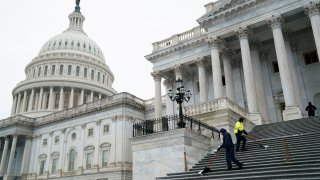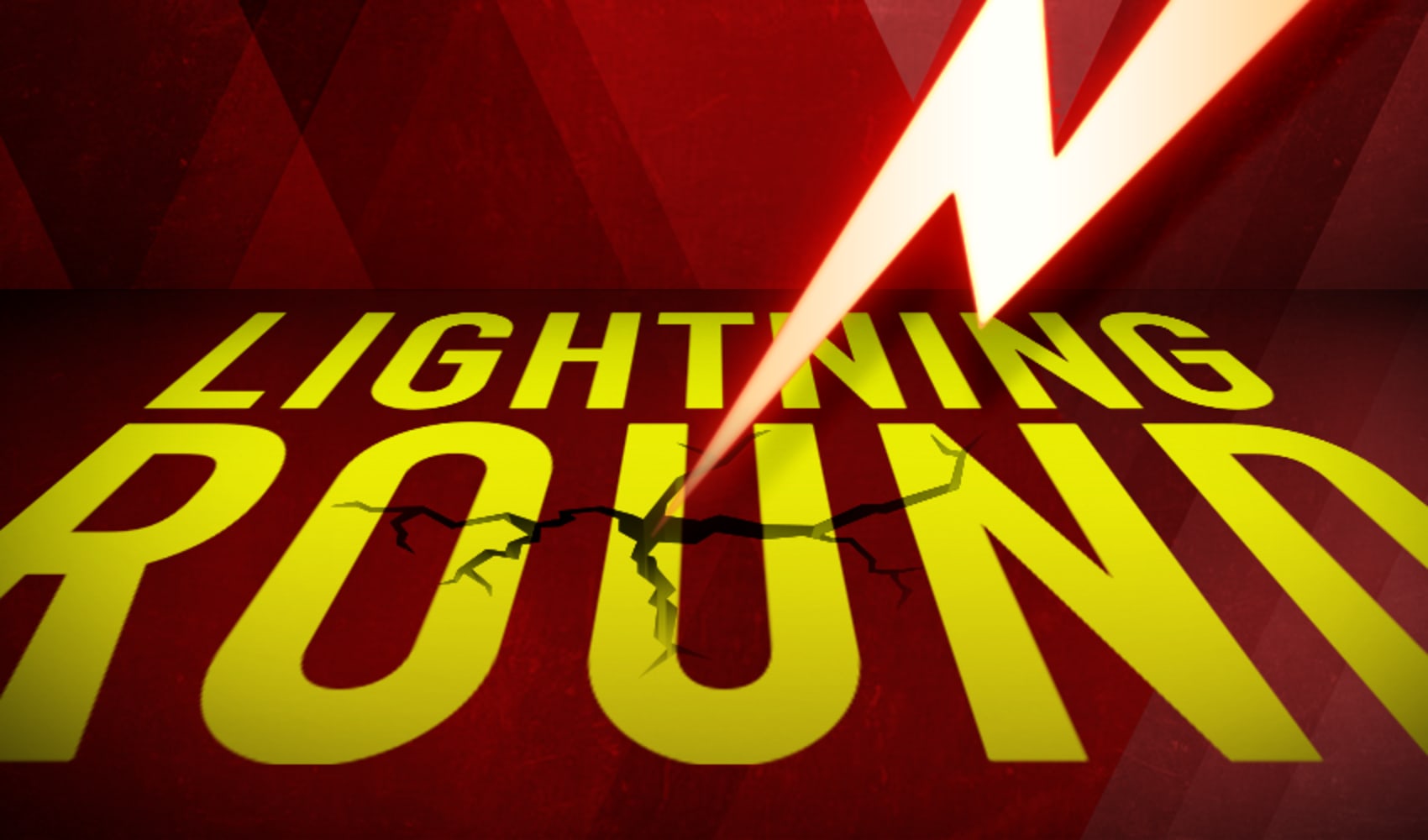
- Congress is getting close to a $900 billion coronavirus relief deal.
- Senate leaders Mitch McConnell and Chuck Schumer said they hoped to reach an accord "soon" on pandemic aid and government spending.
- The government will shut down on Saturday and 12 million people will lose unemployment benefits the day after Christmas if Congress fails to act.
Congressional leaders closed in on a $900 billion coronavirus relief deal as millions of struggling Americans wait for help.
The developing aid agreement would not include liability protections for businesses or aid to state and local government, CNBC confirmed. Disagreements over those issues have blocked lawmakers from crafting a year-end rescue package.
"We're still close and we're going to get there," Mitch McConnell, R-Ky. told reporters Wednesday evening.
On the Senate floor earlier in the day, he said: "We made major headway toward hammering out a targeted pandemic relief package that would be able to pass both chambers with bipartisan majorities."
Speaking after McConnell, Senate Minority Leader Chuck Schumer, D-N.Y., said "we are close to an agreement" but noted "it's not a done deal yet." He added that Democrats "would like to have gone considerably further" to offer relief and will press for more aid after President-elect Joe Biden takes office on Jan. 20.
Money Report
The measure would contain a direct payment to Americans in some amount, as well as enhanced federal unemployment insurance, NBC News reported. In addition, Republican Sen. Steve Daines of Montana told CNBC the deal would have roughly $300 billion in small business aid including Paycheck Protection Program loans, money for Covid-19 vaccine distribution and testing and relief for hospitals.
"I'm cautiously optimistic we're going to see this $900 billion package released today, and this will likely get passed before we go home this weekend," Daines told CNBC's "Squawk Box" on Wednesday morning.
Congress has rushed to find consensus on legislation to fund the government and rescue a health-care system and economy buckling under the pandemic. If lawmakers fail to act, the government will shut down on Saturday, 12 million people will lose unemployment benefits the day after Christmas and millions more could face the threat of eviction.
Congress finally neared an emergency relief agreement after Tuesday night negotiations among McConnell, Schumer, House Speaker Nancy Pelosi, D-Calif., and House Minority Leader Kevin McCarthy, R-Calif. Republicans and Democrats had failed for months to make progress toward a bill that could get through a divided Congress. But they appeared to move close to an deal during their talks.
After the discussions, McConnell and Schumer said they hoped to have an agreement "soon."
Congress faces a challenge in trying to write sweeping legislation and approve it before Friday. McConnell told Republicans they should prepare to work through the weekend, according to NBC.
Politico first reported that congressional leaders were near a $900 billion deal. Parts of the bill appear to reflect a bipartisan plan released by rank-and-file lawmakers this week. However, that proposal did not include any direct payments.
The measure being developed by congressional leaders will contain stimulus checks to individuals which could come out to about $600 per person, according to NBC.
In describing to Republicans that the proposal would put more money directly into Americans' bank accounts, McConnell noted that Trump supports the provision, according to NBC. He also said including the cash infusions would help GOP Sens. David Perdue and Kelly Loeffler in their Jan. 5 Georgia runoff races that will determine the Senate majority.
Congressional progressives have urged party leaders to include direct payments in any legislation. Sens. Bernie Sanders, I-Vt., and Josh Hawley, R-Mo., have also threatened to delay passage of a bill that does not include a second $1,200 deposit to most Americans.
At this stage, the Senate would likely need unanimous support to pass a bill quickly enough to meet the midnight Friday deadline. It remains to be seen how a potentially smaller stimulus check, or the exclusion of state and local government relief, would affect support of the legislation this week.
As the agreement developed Wednesday, Sanders told MSNBC that $900 billion "is a much smaller amount than the country needs in this moment of economic desperation." However, he called it "good news" that as he understands it now, the bill would send working-families Americans $600 per adult and $600 per child.
Hawley, meanwhile, told reporters the direct payment provision is "progress" but "not where I would like it to be."
Lawmakers cannot send help soon enough for millions of Americans. The economy has taken a hit in the face of an unchecked coronavirus outbreak that has killed more than 300,000 people in the U.S.
As millions still have not gained back jobs they lost at the start of the pandemic, long lines have formed at food banks around the country. Many Americans remain in their homes due to eviction moratoriums but lack the money to pay the rent they owe.
In addition, the distribution of Covid vaccinations — which started this week and gave Americans a glimmer of hope that the crisis could ease in the coming months — will rely on additional federal funding.
Of course, many in Washington feel a $900 billion plan will not go nearly far enough to lift families merely scraping by during the pandemic. Biden, like Schumer, has signaled Democrats will push for more relief in the new year.
Speaking Wednesday at an event where he introduced Pete Buttigieg as his selection for Transportation secretary, Biden called the developing proposal "encouraging."
"But it's a down payment, an important down payment on what's going to have to be done beginning at the end of January, beginning of February, but it's very important to get it done and I compliment the bipartisan group for getting it done," he said.
— CNBC's Ylan Mui and Christina Wilkie contributed to this report






